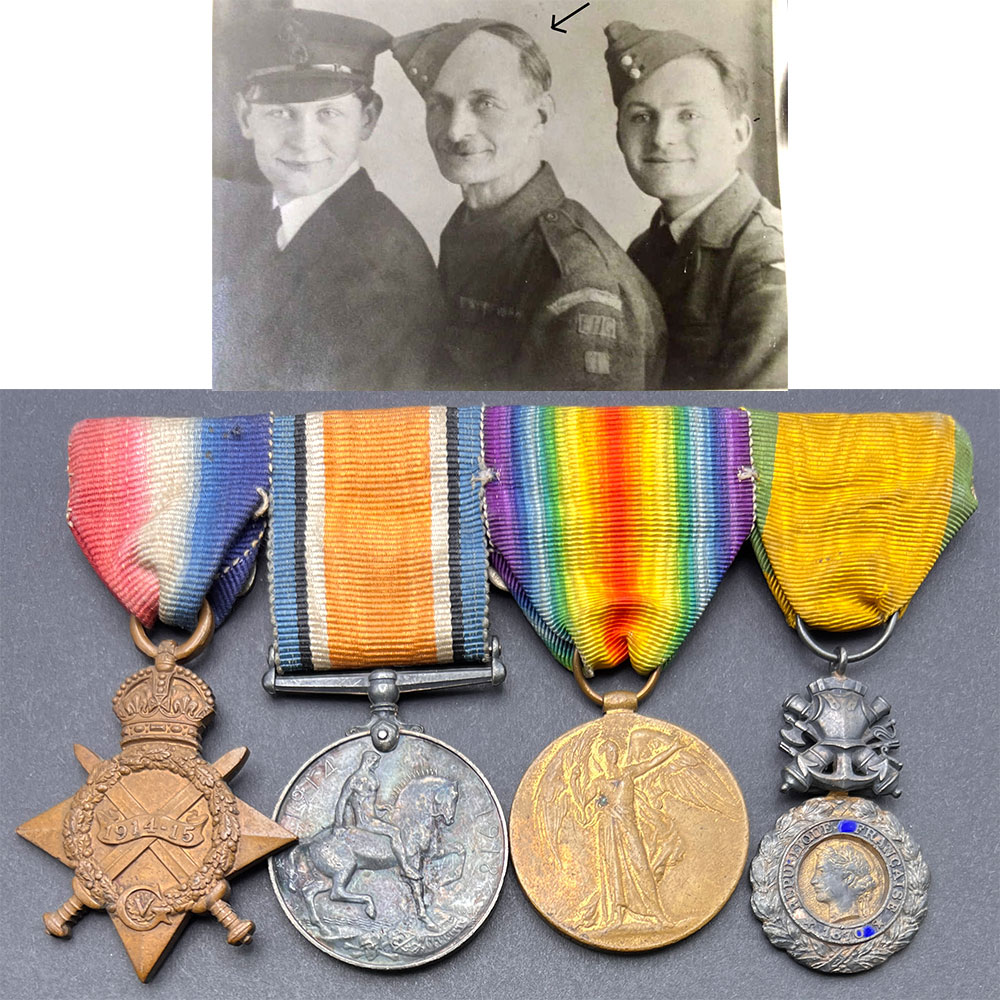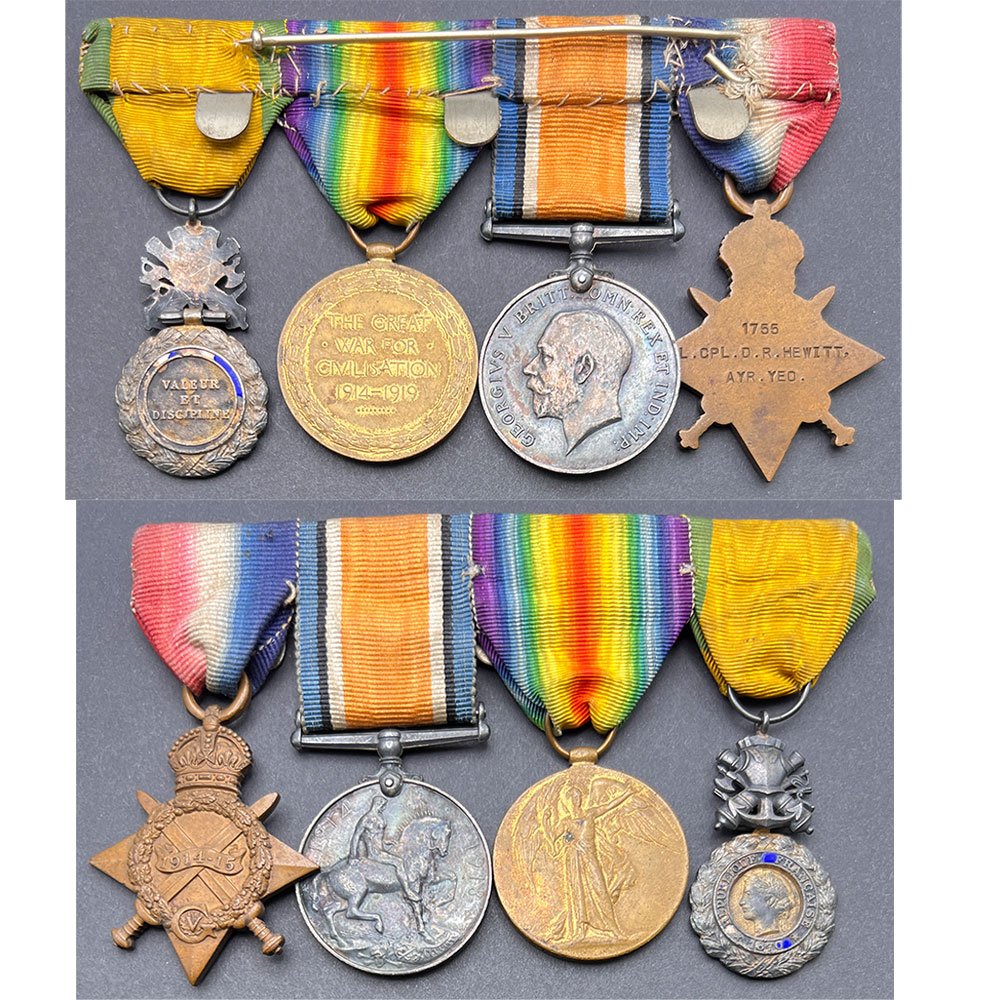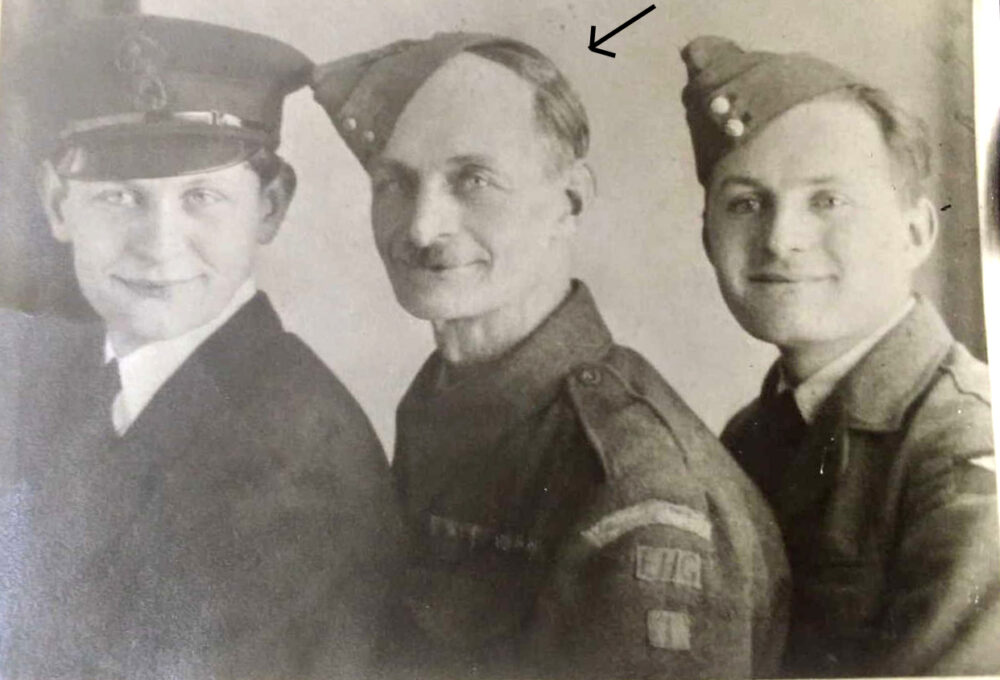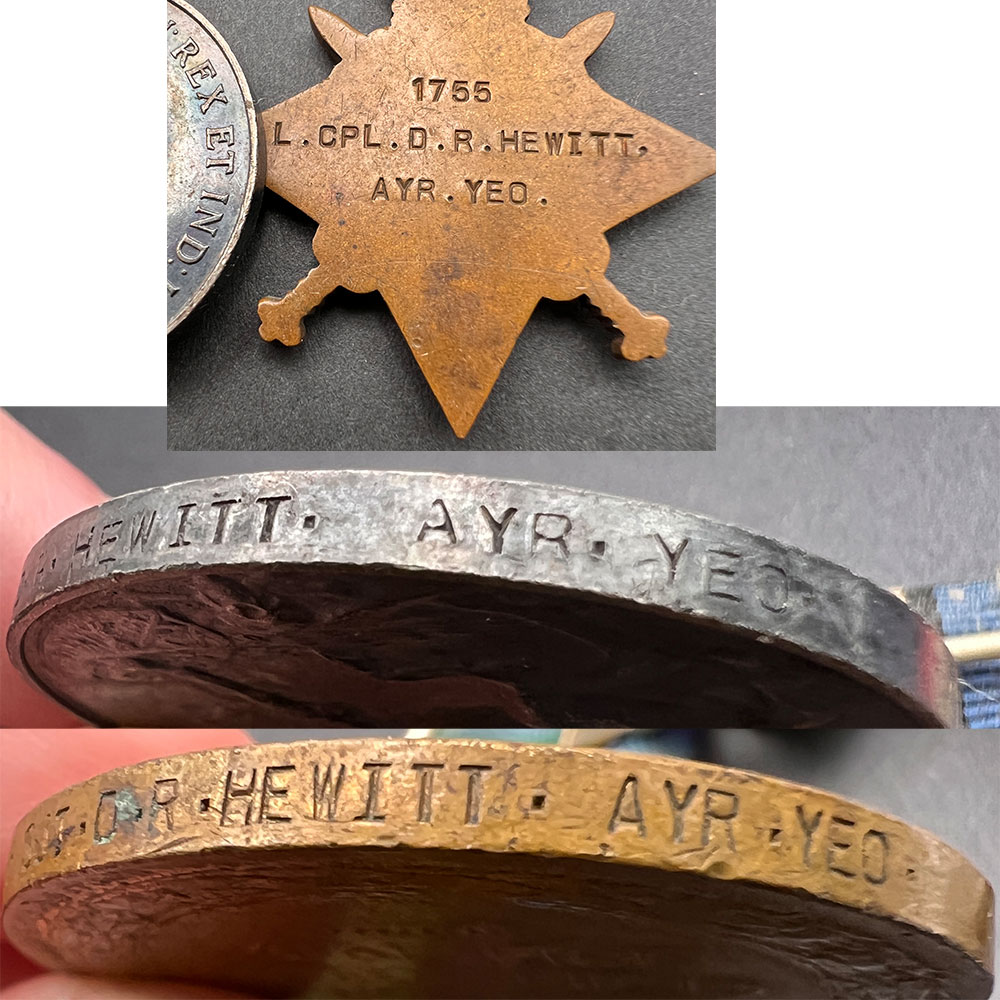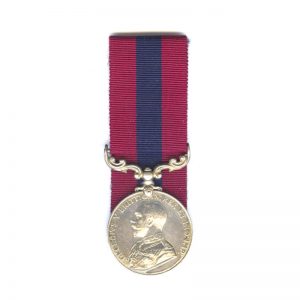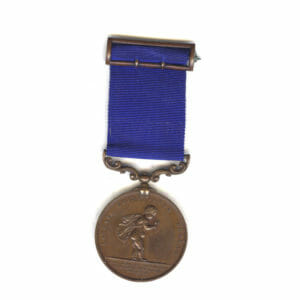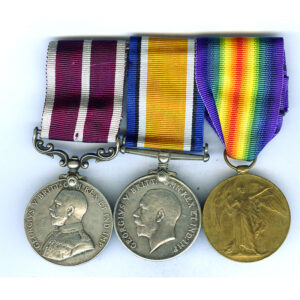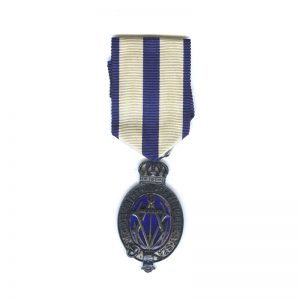Description
1914-15 Star, British War and Victory Medal, France Medaille Militaire, Sergeant David Riddell Hewitt, Ayrshire Yeomanry on all 3 medals, later Royal Scots Fusiliers, confirmed award.
1914-15 Star Officially impressed: “1755 L. Cpl. D.R. Hewitt. Ayr. Yeo.”
British War and Victory officially impressed: “1755 Sjt D.R. Hewitt. Ayr. Yeo.”
Medaille Militaire with some chipping through wear.
Nice old mounted group on silk ribbons as worn, the BWM mounted backwards as worn to display design on all the medals.
David Riddell Hewitt, was an Ayrshire Yeomanry NCO throughout the war, having initially landed in Gallipoli as a Corporal of the 1/1st Ayrshire Yeomanry, and he was absorbed into the newly formed 12th Ayrshire and Lanark Yeomanry Battalion of the Royal Scots Fusiliers after 1917.
“Sergt. David Riddell Hewitt, R.S.F, who was in Burma for 4 years, and who, prior to enlisting, was with the Albion Motor Company in Glasgow, has been awarded the French Military Medal.
He is the eldest son of Dr. Hewitt of Prestwick.” – The Daily Record, Glasgow, 26th May 1917.
Award of the French “Military Medal” or Medaille Militaire, announced in the Edinburgh Gazette, 25th May 1917 and London Gazette, 21st May 1917.
WORLD WAR 1
He first entered into the war on 11th October 1915 landing in the “2b” Balkans Theatre of War, when they landed in Gallipoli.
“On the outbreak of the First World War, the regiment was one of the fastest to react to the mobilisation order and received congratulations from Scottish Command, even though there was an initial delay in that the orders came in a code that had not been issued to the regiment! Following mobilisation, the regiment joined the Lowland Mounted Brigade and remained in the United Kingdom, on home defence duties, until 1915. The regiment finally deployed overseas in September of that year, where it took part in the Gallipoli landings, serving as dismounted infantry. The regiment was attached to the 52nd (Lowland) Division in October; it was withdrawn in January 1916 and moved to Egypt.”
During the War, as a member of the 1/1st Battalion (Earl of Carrick’s Own) Ayrshire Yeomanry, he was amalgamated into the 12th Battalion Royal Scots Fusiliers:
“In early 1917 the regiment was amalgamated with the Lanarkshire Yeomanry to from the 12th (Ayr and Lanark Yeomanry) Battalion of the Royal Scots Fusiliers in 74th Yeomanry Division (The Broken Spurts), seeing service in the Palestine Campaign before moving to the Western Front in May 1918.”
Notably a member of the regiment, Thomas Caldwell, a fellow Sergeant of the 12th R.S.F. Won the Victoria Cross on 31st October 1918 at Oudenaarde in Belgium, he was the only recipient of the Ayrshire Yeomanry to this day.
After the war as a Sergeant he was demobilised on 28th March 1919.
HIS LIFE
Mr David Riddell Hewitt, was born on 1st February 1882 in Prestwick, Ayrshire.
He was a son of the popular local Doctor, Dr William Hewitt, and Catherine Cumming Welsh, regarded as a “Kenspecle Figure” in his youth.
The rather odd Dr who was known around town as the “Wee Doctor” was quite famous “Many anecdotes were told of the Doctor, who was in demand to ride on a White Horse at the head of processions in the town.
In his later years in practice he rode round the district on a motorised Tricyle. An enthusiastic experimenter he nearly drowned after he had modified it to float on the Pow Burn.” – Reads an article from the Ayrshire Post 20th March 1987, recalling some of the interesting characters of Prestwick.
We have a copy photograph of him on his motorised tricycle.
Back in 1902 his father was noted as “The Public spirit shown by Dr Hewitt at the away going and home coming of the Imperial Yeomanry Volunteers, and now at the conclusion of the war, is favourably commented upon by all classes. He has taken the lead on all these occasions, and we hope that the date is not far distance when his action will be suitably recognised.”
David grew up in Monkton and Prestwick in Ayrshire, in 1901 he was listed as a Mechanical Engineer Apprentice, likely inspired by his father and his tinkering.
In 1913 some patents were filed: “David Riddell Hewitt, Syringes, Hand Pumps, and such like”
Before he as mentioned in the local papers in 1917: “Spent 4 years in Burma.”
After the war he moved to the City and settled in Edinburgh, where he lived for the rest of his life.
He had married Hannah Elizabeth McArthur
